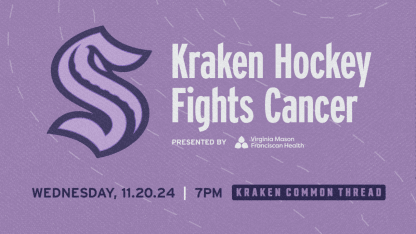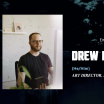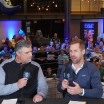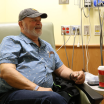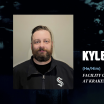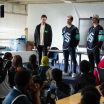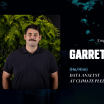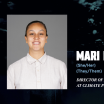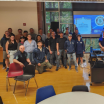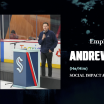Owen began getting regular PSA screenings in December 2015, knowing one of his two brothers had survived prostate cancer while an uncle had died from it. The reading for his first test was a relatively low 3.84, but by January 2022 it had skyrocketed to 13.27.
“Anything over five, you get nervous about,” Owen said.
Actually, any score over 4.0 in men over 60 is usually cause for additional screening and monitoring over time. And anything over 10 usually prompts additional medical investigation.
Given the steady progression Owen had seen throughout his regular testing every six months, he’d already consulted the prior year with a Virginia Mason specialist and formulated a plan.
He got re-tested after the higher-than-expected reading and the new result came back at a lower 9.61. But that was still too high for Owen’s liking.
So, he got an MRI test and then a biopsy in which a handful out of 18 samples showed evidence of cancer, Owen had surgery in September 2022 and his prostate was removed. Where a normal-sized prostate gland measures about 25 cubic centimeters, his, when removed, had swollen to 145.
“It was in the top 10 of my surgeon’s history,” Owen said.
But though he’d removed the gland, his ordeal was far from over. As can be quite common, he became incontinent. Then, a follow-up exam three months later found more cancer.
He was prescribed hormone therapy to reduce testosterone levels and then 33 radiation applications spread over five per week to kill any cancer still lingering. The radiation fatigued him, and the hormone treatments caused hot flashes.
But he got through it and his cancer disappeared.
The incontinence was still an issue. But his Virginia Mason doctors implanted a device within him that was able to severely reduce it.
“It’s like I’m five years old and it’s Christmas morning,” Owen said. “It’s like, better beyond belief.”
Dr. Paul Kozlowski, a VMFH urologist, said about 250,000 men are expected to be diagnosed with prostate cancer in the U.S. next year. But if caught quickly enough, it doesn’t have to be fatal or even all that serious to treat.
Kozlowski plans to be at the blood draw clinic at Climate Pledge during the Kraken game.
“Guys are typically notorious for not going to see their doctors, but they love sports,” Kozlowski said. “So, we’re going to go to them.”
Kozlowski isn’t sure why men are often so reluctant to get a PSA test. Some may not realize it’s a simple blood draw. Or, they just can’t be bothered to go because they feel fine and not sick.
“I don’t know if it’s a society thing and guys just feel they have to be tough,” he said. “I mean, I don’t think it’s so much the norm today where men are the only providers. Now, in most households, the men and women are working and providing and some men are even staying home, which is awesome.
“But I think traditionally guys have just never been that focused on their health. And that’s hopefully a thing where we’re starting to see a change.”
Also, he hopes women at the game might stop by the clinic and gather information. Then, he said, they can maybe push the men in their lives to go to their doctors for screenings.
Kozlowski said there’s a common misconception among men that treating prostate cancer always involves uncomfortable surgery and side effects.
“In many men, it doesn’t need to be treated,” Kozlowski said, adding that some can just live with it and be monitored without surgery or radiation. “I think guys sometimes get caught up in ‘Oh, I heard from a buddy’ or ‘I heard from a friend.’ But this is a disease that if it’s caught early, it’s definitely had improvements in survivorship.”
Kozlowski admits it can be tough to treat patients he knows waited too long to get screened.
“I think it’s very frustrating, particularly as this is a field I’ve been working in the past 24 years,” he said. “I like to say to my patients, ‘A few minutes of your time now will result in years down the road.’ If guys could have taken the time to come in and get screened, we could have had him around for a lot longer.”
Owen, who works for the University of Washington at a research institute focusing on genetics, has made the most of the extended time he bought himself by getting screened early and catching his cancer in time. He’s placed increased emphasis on spending time with family, especially his only grandson, now 4, living in Minnesota.
“I am determined to see him graduate from college,” he said. “He lives in Minnesota and I’m his only grandpa, so I feel this sense of obligation.
“He’s 2,000 miles away, so it’s not like I get to see him every other weekend,” he added. “But we stay in touch. I mail him an old-fashioned letter twice a month and he keeps them all. It’s been going on for two years.
“So, I feel very blessed, very fortunate that I not only caught this early but that the talent and skills of oncologists and urologists at VMFH have given me incredible hope and confidence.”

